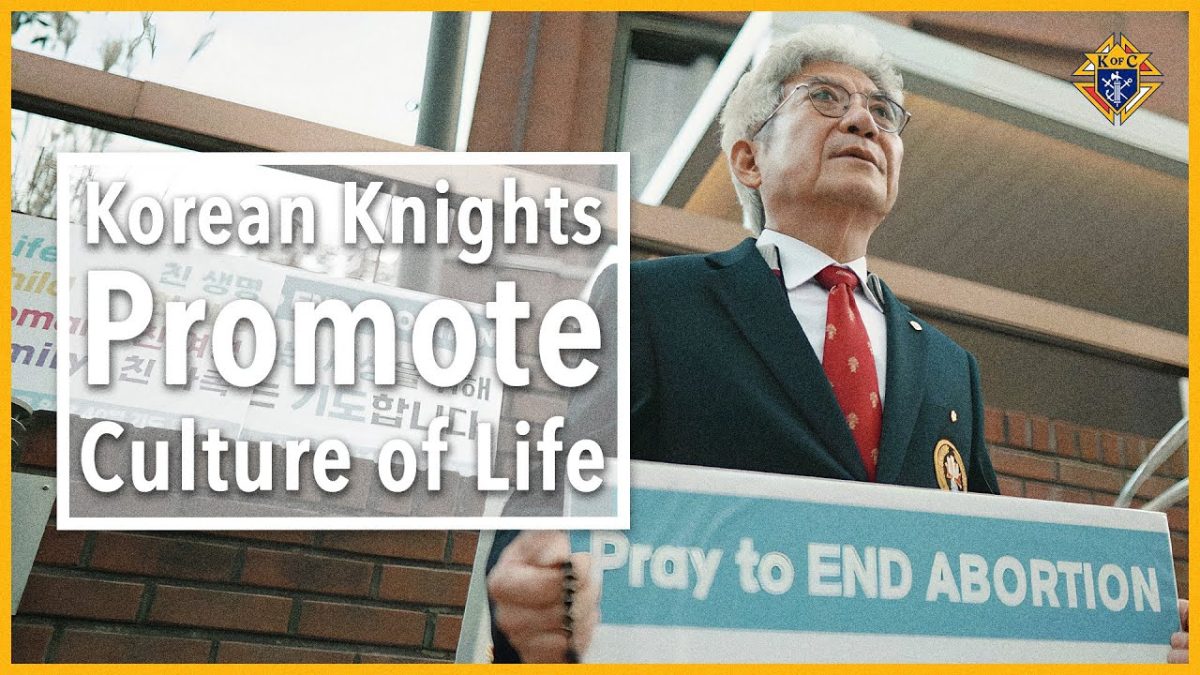(Fifth Sunday of Lent-Year A; This homily was given on March 26, 2023 at Santo Spirito in Sassia in Rome, Italy; See John 11:1-45)
(Fifth Sunday of Lent-Year A; This…
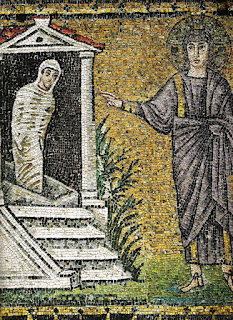

(Fifth Sunday of Lent-Year A; This homily was given on March 26, 2023 at Santo Spirito in Sassia in Rome, Italy; See John 11:1-45)
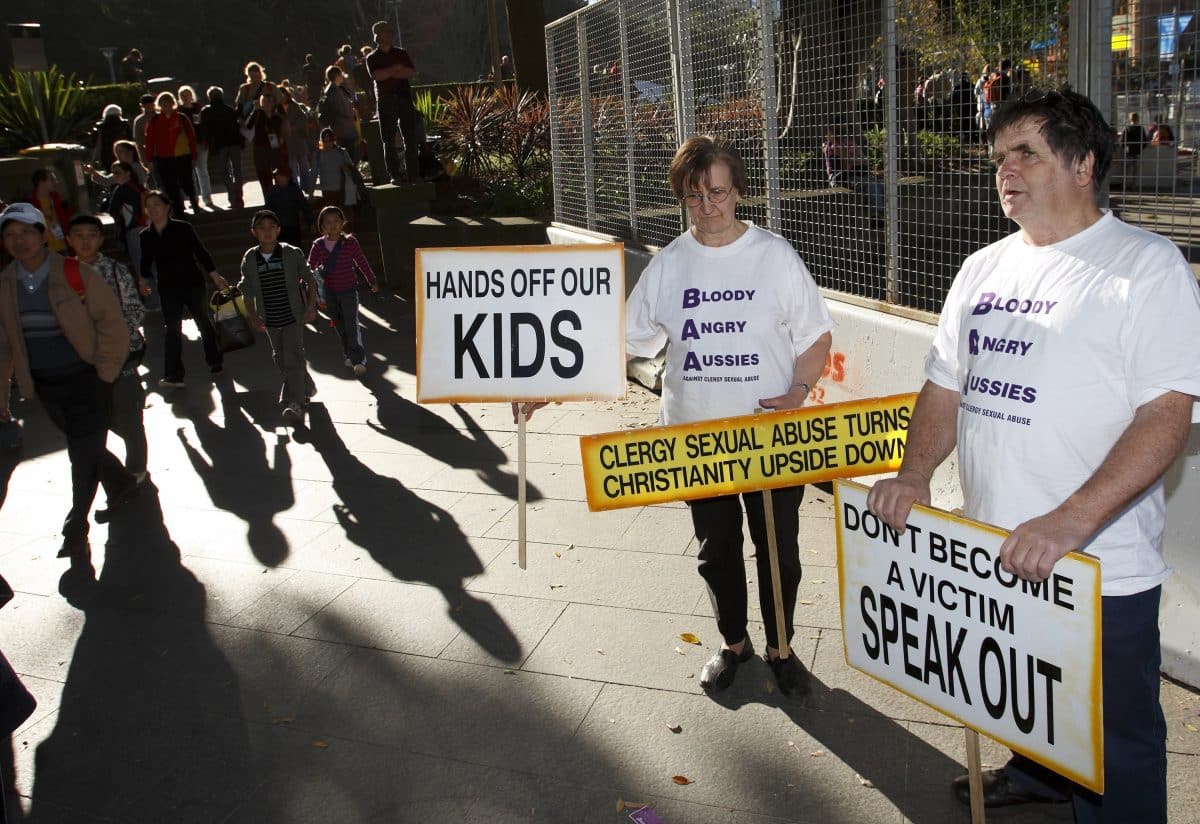
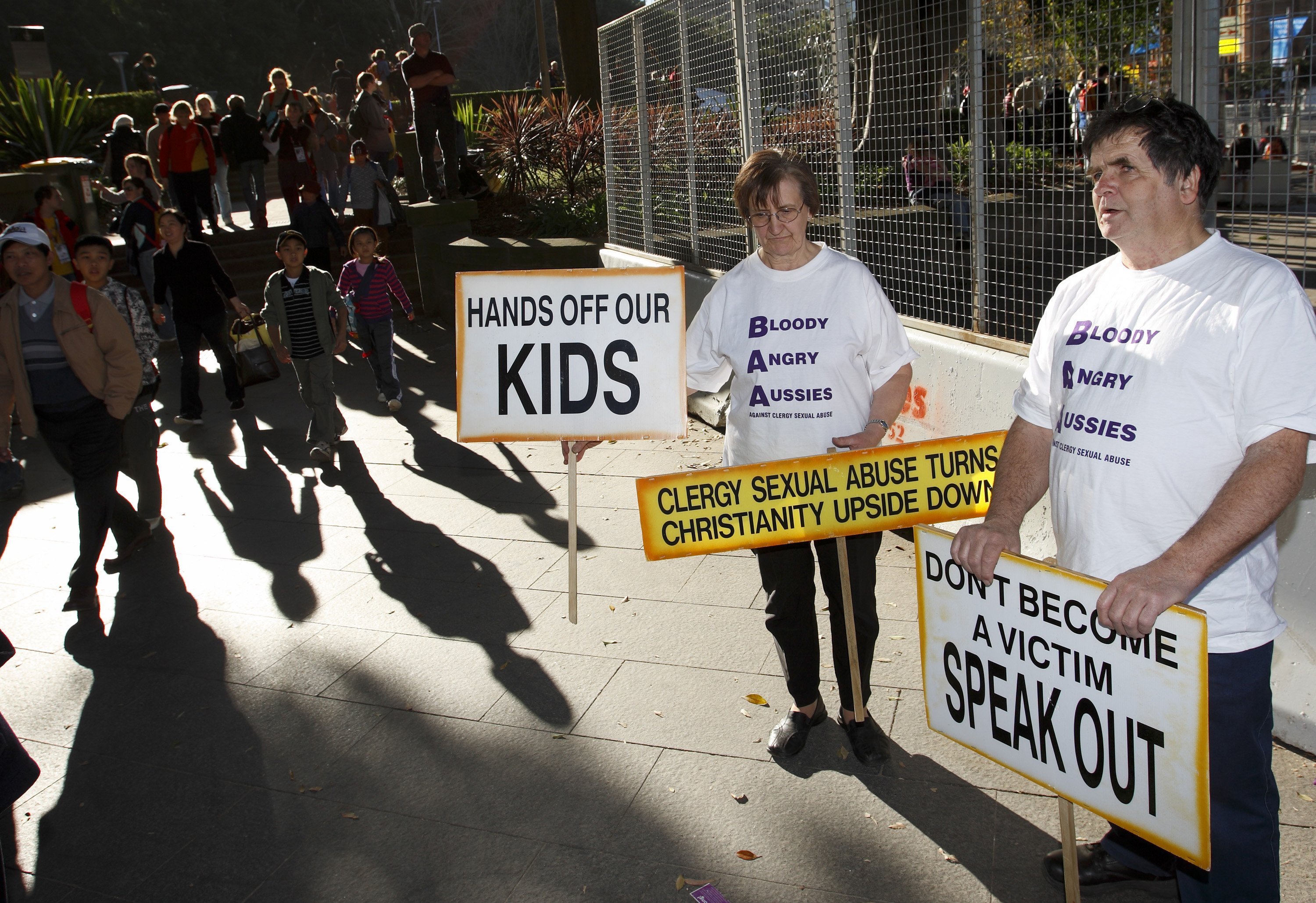
Pope Francis on March 25 made permanent his 2019 experimental law on clergy sex abuse, which was established to hold bishops and religious superiors accountable for abuse that they commit or cover up, and extended the law to now include lay leaders who head international associations recognized by the Vatican.
The norms were first published in a 2019 apostolic letter titled Vos estis lux mundi (« You are the light of the world »), and for the first time in the church’s history, mandated that all priests and members of religious orders worldwide are obligated to report any suspicions of abuse or its cover-up.
Now, after a four-year experimental period and consultation with bishops and Vatican officials, Francis has revised the legislation and made it definitive, effective April 30.
In addition to expanding the law to hold lay leaders of Vatican-approved associations accountable, the updated version clarifies that dioceses and eparchies must have an « organization or office » for cases to be reported (rather than the 2019 requirement of a « stable system »). The revised law also extends the protection of those who file reports to both the individual alleging abuse and those who witnessed the alleged offense.
The initial norms came on the heels of Pope Francis’ historic February 2019 summit on abuse, where he summoned the presidents of every episcopal conference from around the world to Rome following mounting fallout from clergy abuse scandals involving a number of high profile cases of abuse and cover-up from prominent bishops in the United States, Chile and in Europe.
At the time, the law was praised as « revolutionary » and a major step forward in turning a corner on clergy sexual abuse and its cover-up. In recent years, however, both accountability organizations and close papal advisers have admitted that its implementation lacked consistency and transparency.
An editorial in Vatican News, the church’s official news platform, published on March 25 said the updated norms evidence the « Church’s desire to continue to combat crimes of sexual abuse. »
One of the most notable changes of the new text includes a clarification of how abuse victims are defined.
While the original norms covered abuse or cover-up against minors and vulnerable persons, the new law has been revised to specify « a minor, or with a person who habitually has an imperfect use of reason, or with a vulnerable adult. »
German Jesuit Fr. Hans Zollner, director of the Institute of Anthropology at the Pontifical Gregorian University in Rome, had previously criticized the language of « vulnerable persons » as too broad.
« Do you really want to be a ‘vulnerable person’ because you are a woman and because you are a parishioner? I don’t think so, » remarked Zollner during a March 2 dialogue with abuse survivors.
In addition to mandating that priests, bishops, religious superiors and now the leaders of some 120 lay associations recognized by the Vatican report abuse, the new Vos estis makes clear that anyone, « especially lay believers holding offices or exercising ministries in the Church, » can submit reports of abuse.
The law continues to rely on the same framework of utilizing metropolitan archbishops to examine accusations made against bishops in their regions.
Once a report is submitted, the metropolitan must request approval from the Vatican to conduct an investigation, according to the norms. The Vatican is required to receive an update every 30 days on the status of the investigation, and once it is concluded, must receive the final results and the opinion of the investigator, before the Vatican issues a final ruling.
Since its implementation in 2019, the process has been used in at least 40 cases, including 11 in the United States and 16 in Poland. Advocacy and accountability groups, however, have lamented the lack of transparency in knowing the full number of cases, as well as the status of the investigations underway.
Under the new revisions to the law, the norms note that « it is the duty of the Ordinary [bishop] of the place where the events allegedly occurred to proceed in accordance with the law as provided for each specific case. »
In an interview with Vatican News, Chicago Cardinal Blase Cupich, who serves as a member of the Vatican’s task force for the protection of minors, said the revision « puts a priority in cooperating with local law enforcement and following the laws of the land. »
« This is not just a Church matter. This is not just a matter of a sin. This is a crime. And it recognizes that these crimes have to be adjudicated by law enforcement in each locality, » said Cupich.
Upon news that Francis had made permanent the norms, Zollner’s safeguarding institute issued a statement praising the revisions, which they stated « better define the responsibilities of those in authority and extend norms to include lay leaders of international associations of the faithful, are a welcome addition to the procedures aimed at preventing abuse. »
Anne Barrett Doyle, co-director of BishopAccountability.org, called the new law a « big disappointment » as it failed to correct what she described as the « crippling weaknesses » in its original form.
« Vos estis remains self-policing packaged as accountability. It keeps bishops in control of investigating and judging allegations against fellow bishops. It omits any requirement to inform the public. It tells bishops that they do not have to report child molestation to civil authorities unless they are mandated to do so under local law. And it limits lay involvement to roles that are fragmented and powerless, » she said in a statement.
« Far more must happen if victims are to heal and children are to be safer inside the Catholic Church, » Barrett Doyle concluded.
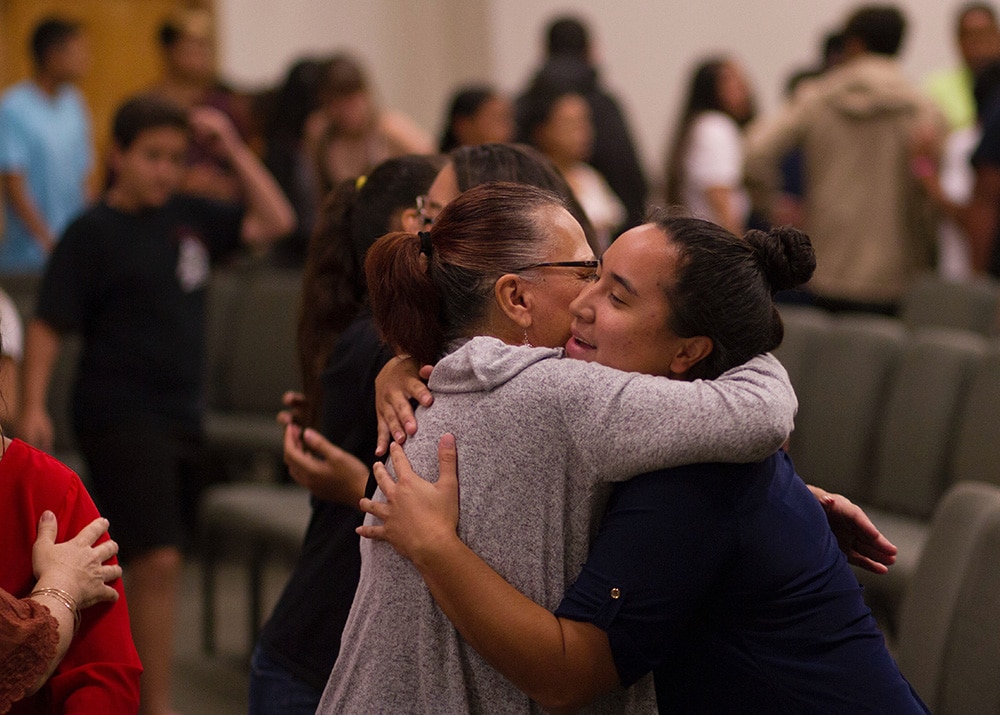

As John the Evangelist shows us how he understood Jesus, we run into some disconcerting ideas. Last week, we heard that the blind man’s disability was not a result of anyone’s sin, but the occasion for seeing the glory of God. This week, Jesus explains that Lazarus’ illness « is for the glory of God that the Son of God may be glorified through it. »
That could sound a bit like my scrupulous Irish ancestors’ belief that God sends suffering to purify us or, that afflictions make up for sin. That raises the question, « Does God cause or allow bad things happen to good people for God’s own sake? To balance the divine scales? »
That’s one oft-preached way of understanding of Jesus’ mission. In this perspective, it was God’s plan and will that Jesus suffer and die because there was no other way to atone for human sin.
Of course, when we think about that, we might begin to wonder why God’s power would be so limited, why God would have to follow a strict law of retaliation. Might that theology be blasphemous?
Scripture scholar Jesuit Fr. Silvano Fausti says that the Gospel of John has no Transfiguration scene because John’s whole Gospel gradually reveals Jesus’ glory, God’s presence in human flesh and history. John’s entire Gospel is an unfolding Epiphany.
From that perspective, we see Jesus constantly confronting evil: the natural evil of sickness and death and the human-caused evil of betraying or thwarting the human vocation to love. In each case, Jesus’ response is life-giving. Jesus reveals that the essence of God’s being and glory is life-giving love. Jesus constantly offers us the invitation to enter into the dynamic of that love.
Using this perspective on this week’s Liturgy of the Word ushers us into an experience of epiphany, into scenes of God’s self-revelation.
Our selection from Ezekiel comes from the latter third of his writings, the section in which he begins to comfort the people who have brought destruction on themselves. While the people consider themselves as good as dead, Ezekiel speaks in the name of God who wants to bring them back to life, give them a new heart (36:26) and allow them to be enlivened by the divine spirit (39:29).
This promise of the divine spirit leads us directly to our selection from Paul’s Letter to the Romans. Paul’s talk of flesh and spirit has nothing to do with denigrating the human body or history. Paul is talking about two fundamental orientations in life.
One is caught up in the zero-sum perspective that proclaims, « Pull yourself up by your own bootstraps, it’s everyone for themselves and there is no free lunch. » That is « the flesh, » a fear and avoidance of vulnerability that makes self-protection the No. 1 priority.
In contrast, the perspective of the spirit realizes that no one is either alone or self-sufficient. Instead of being motivated by fear, people who are in the spirit live with the courage-generating assurance that life is a gift and a promise.
Probably the least-noticed words in today’s Gospel come from Thomas, who says, « Let us go to die with him. » With those words, Thomas proclaimed the very same faith that Mary and Martha professed about Jesus as the resurrection and the life. Thomas was telling his companions that living in fear was truly a dead end.
That awareness opened them to new dimensions of life, to the Spirit of Christ who would lead them beyond their greatest imaginings. Thomas’ decision to accompany Jesus put into action the faith described in all the dialogue that was to come about the resurrection and the life.
When we pay attention to Thomas in this Gospel scene, we get the idea that he had received new life just as did Lazarus. Jesus raised Lazarus and comforted his sisters. In doing so, he confronted and thoroughly undermined the powers of death. When Thomas said that he would follow Jesus in spite of the danger of death, he made the same declaration that we make each time we say, « Lord, by your cross and resurrection, you have set us free. »
Today’s Scriptures urge us to practice living faith, to allow the Spirit of Christ to free us from any fear that focuses us on our own well-being as if it could be separated from that of others. Through the power of Christ’s Spirit working in us, we are called to confront and undermine the powers of sin and death.
Being caught up in the dynamic of loving, we can witness to the glory of our life-giving God who does not send suffering but accompanies us in it through one another.
Let us strive to be with Thomas and keep saying, « Let us go with him. »
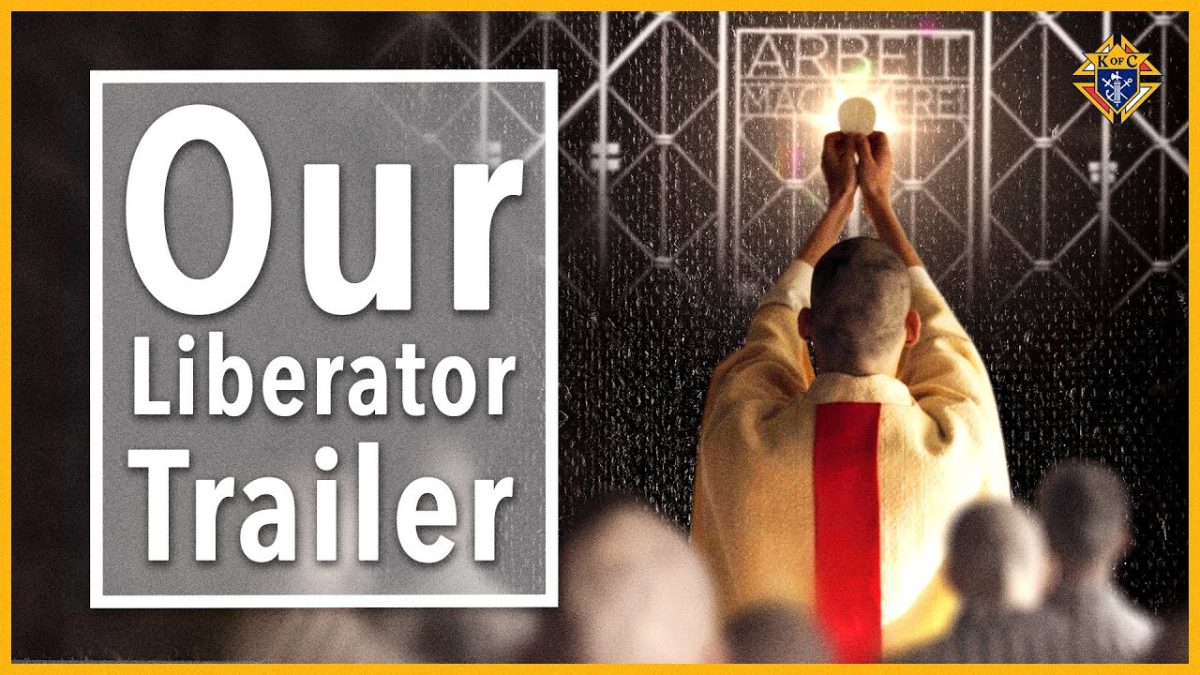
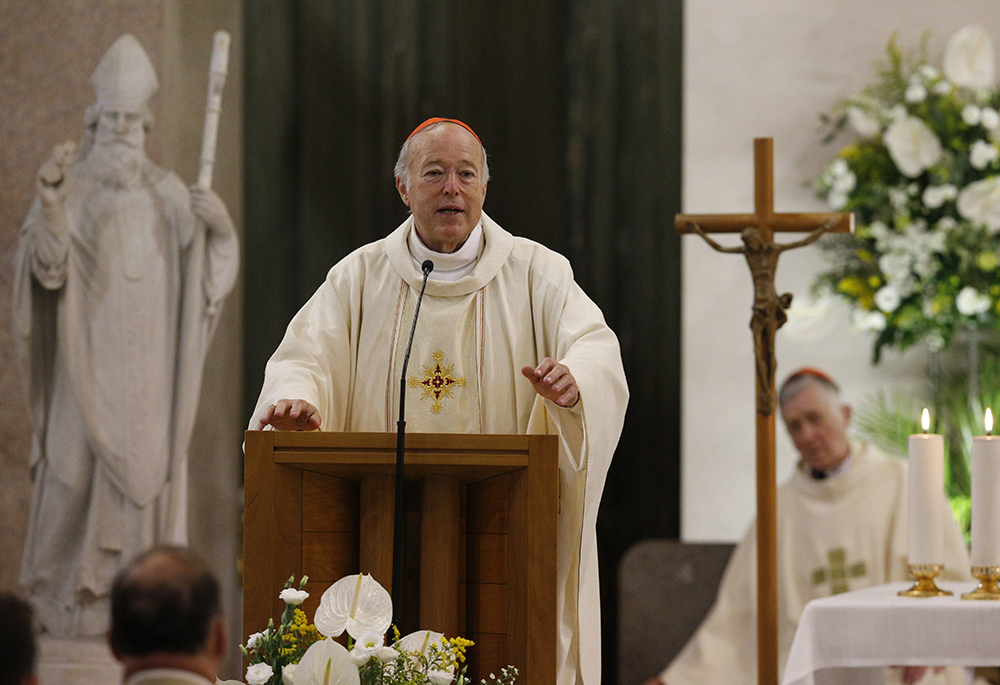

San Diego Cardinal Robert McElroy sharply criticized the Eternal Word Television Network, the conservative Catholic U.S. media conglomerate, in an interview with Spanish magazine Vida Nueva published on March 24.
Vida Nueva asked McElroy about the decision of newly installed Bishop Fernando Prado of San Sebastián, Spain, to ban diocesan television from carrying content produced by EWTN. Prado wrote that he made the decision « trying to support the communion of the diocese with the Successor of Peter. »
« I would not have EWTN on diocesan media either, » McElroy responded.
« EWTN worries me because it represents a giant of economic and cultural power connected to a religious viewpoint that is fundamentally critical of the pope, » the cardinal said.
« The main anchors of the channel constantly minimize the abilities and theological knowledge of Francis, cite Archbishop Carlo Maria Viganò’s slander of the pope and try to move the world away from the reforms the pope is signaling, » said McElroy.
Viganò, a former Vatican ambassador to the U.S., has called on Francis to resign the papacy.
McElroy said that Francis has encountered so much opposition because of his « intention of completing the work of the Second Vatican Council, » as well as his « constant inclusion of the experiences and spiritual points of view of the Global South at the center of the life of the church. »
In the U.S., McElroy said that this opposition is exacerbated by Catholics’ worries that « the pope is open to exploring paths of pastoral action in the church that are not prohibited by existing doctrinal formulations. »
« Francis’ attention is centered on the life of the believer in its complexity and on how the Gospel and the tradition of the church can apply in an effective and compassionate way to the lives of those who struggle ardently to draw close to God and follow his path in the midst of so many challenges, » said McElroy.
This focus of Francis « doesn’t have the clarity and security that many have come to trust in their understanding of the faith, » said McElroy. « But it does incarnate the pastoral method of the same Lord who calls us to draw close to each person first with a loving embrace, then with help and healing, and after with the call to conversion and to change. »
In the interview, McElroy reiterated his previous call to open the diaconate to women, while raising concerns about the ordination of women to the priesthood.
« I am afraid that the ordination of women to the priesthood in this moment would deeply divide the church and for this reason it should not be an objective of the synodal process, » McElroy said, taking a more definitive stance on the issue than in his article for America magazine, where he wrote that it was « likely » the synod would opt to reserve the priesthood for men without stating a personal position.
When asked if Francis can be considered a feminist, McElroy responded that it would be « jarring » to classify the pope that way. But the cardinal praised the pope for better including women in church structures.
Francis « has broken significant barriers for women in the life of the church and has constantly underscored the essential role that women carry out in Catholic faith and action at all levels, » McElroy said.
However, McElroy said, « he is still looking for — as is the whole church — a theological framework that soundly reveals the equality of women in its fullness, in the midst of the unequal cultures of our Catholic world. »
McElroy’s recent writing about how the church should minister to LGBTQ people and divorced and remarried Catholics has received significant backlash, including an essay where Bishop Thomas Paprocki of Springfield, Illinois, seemed to accuse McElroy of heresy.
When asked by Vida Nueva if the accusation of heresy hurt him, McElroy acknowledged that it did, but he said it hurt the church more.
« This language endangers the church even more, in breaking down the dialogue that we should maintain these days about the fundamental questions that we are confronting, » McElroy said.
He noted that he had written his doctoral thesis in theology on Jesuit Fr. John Courtney Murray. Murray, who served as the chief author of the Second Vatican Council document Dignitatis Humanae, the Declaration on Religious Freedom, had been earlier forbidden to write about religious liberty without approval from the Jesuit superior general.
« It is vital that during all of these debates over doctrinal questions we resist the temptation of using negative labels against those who adopt postures that are opposite to ours, » said McElroy.
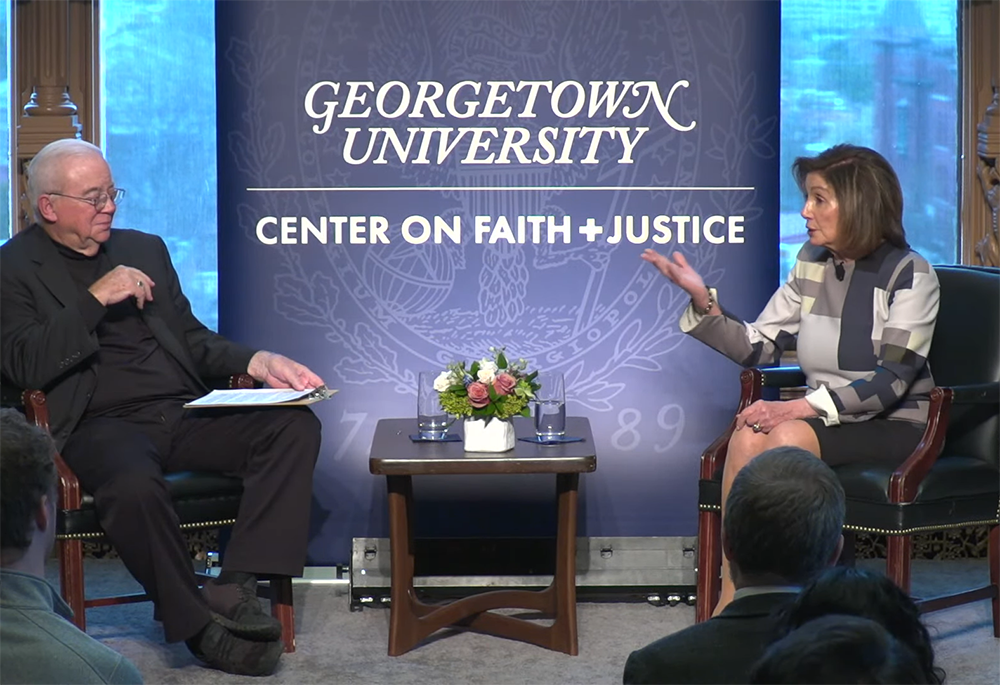

Former U.S. House Speaker Nancy Pelosi told students at Georgetown University on March 23 that, growing up, she was more attracted to being a priest than being a Catholic sister because of the priest’s ability to celebrate Mass.
« Turning bread and wine into the body and blood of Christ, that is real power, » she said.
« Maybe one day women will be able to do that as well, » Pelosi said, expressing hope that Pope Francis would act on women’s ordination.
Pelosi spoke to Rev. Jim Wallis, director of the Georgetown University Center on Faith and Justice, as part of an inaugural conversation in a new series named Higher Calling, where political leaders and public servants will speak about the role of faith and ethics in their lives. She also answered several questions from Georgetown students in the audience.
Wallis and a Georgetown student both asked Pelosi about how she dealt with disagreements with U.S. bishops. In May 2022, San Francisco Archbishop Salvatore Cordileone declared that Pelosi could not receive Communion in that archdiocese until she publicly renounced her support for legalized abortion and went to confession. (Pelosi has continued to receive Communion in Washington.)
Pelosi said that her parents, and especially her mother, taught her about free will. « God has given us a free will, and we have a moral responsibility to live up to that, » she said.
Of Cordileone and abortion, Pelosi said, « I figure that’s his problem, not mine, because I had five children in six years and one week, » she said.
Pelosi said that the U.S. Catholic bishops « are willing to abandon the bulk of [Catholic social teaching] because of one thing, » in a reference to abortion. She highlighted concern over abortion as preventing the U.S. bishops from supporting the 2010 passage of the Affordable Care Act, also known as Obamacare.
« Thank God for the nuns because they offset the bishops, » Pelosi said, in a reference to how groups such as the Leadership Conference of Women Religious and the Catholic Health Association supported the measure.
Pelosi also criticized Cordileone’s role in the 2008 passage of Proposition 8, a California ballot measure banning the recognition of same-sex marriages that technically remains in that state’s constitution even after the U.S. Supreme Court required states to recognize same-sex marriages in its landmark 2015 case Obergefell v. Hodges.
« He’s made it very clear, maybe we’re not all God’s children. Maybe we do not have a free will, » Pelosi said of the San Francisco archbishop.
Pelosi said she mentioned HIV/AIDS in her very first speech on the floor of the House of Representatives in the 1980s. On the topic of defending LGBTQ+ rights, Pelosi said, « it’s my joy. »
« All God’s children, they have their own dignity and worth, their own individuality, their own authenticity, and that’s a beautiful thing for us to embrace, » Pelosi said.
She recounted conversations she said she has recently had with families of transgender children who fear not being able to meet the needs of their children because of new state laws limiting access to health care for trans individuals.
« I also see kids on the streets of San Francisco who are there because their families disowned them, » Pelosi said.
When asked about her Catholic education, Pelosi referenced her March 15 commentary for National Catholic Reporter celebrating Pope Francis’ 10th anniversary, in which she stated that between herself, her husband and their children and grandchildren her family has « more than 150 years of Catholic school education among us. »
When a Chinese international student at the Georgetown event asked Pelosi about how her faith influenced her decision to go to Taiwan last August despite reservations from the Biden Administration, Pelosi said, « I’ve been fighting the Chinese for decades on human rights, » referencing her positions of support for Tibet, Taiwan, Hong Kong and the Uyghur ethnic minority group.
Pelosi also said she has had a « little disagreement » with Francis over his efforts to negotiate with the Chinese government to normalize the status of the country’s Catholic Church.
The Vatican entered into a bilateral agreement with the Chinese in 2018. While the details of the agreement have not been made public, it is understood to allow government input into the selection of Catholic bishops in the country. A number of observers have criticized the deal as being too deferential to the Chinese government.
« I don’t think they’ve gained anything from it, » Pelosi said of Chinese Catholics’ benefit from the agreement.
About the U.S., Pelosi spoke about the viciousness of the campaign process as a deterrent to women running for office. « They do attack the integrity and the compassion that women have, » she said.
« If we could lower the role of money, increase the level of civility, we would have many more women, » Pelosi said.
Pelosi said that child poverty and hunger in the U.S. has motivated her throughout her political career.
« You have to be prepared to take a punch. You have to be prepared to throw a punch, for the children. Always for the children, » Pelosi said.
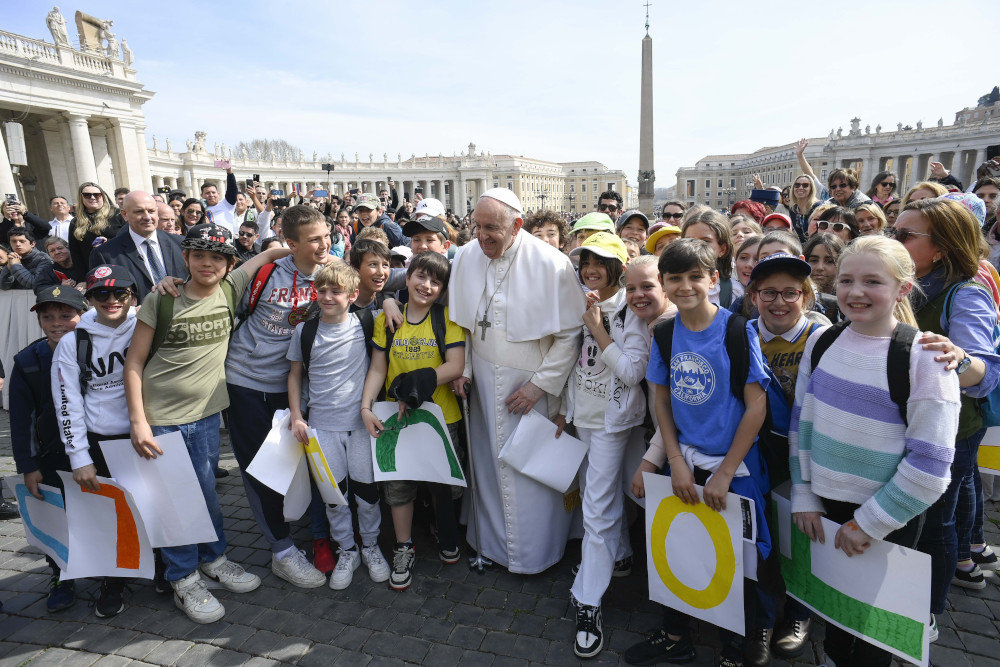

To evangelize well, the faithful need to dialogue with God, let the Holy Spirit renew their hearts and lives, and then dialogue with today’s world, Pope Francis said.
The Holy Spirit is « the protagonist of evangelization. Without the Holy Spirit we will only be advertising the church, » he said during his weekly general audience in St. Peter’s Square March 22.
The church, too, always must be « evangelizing herself » or else « it remains a museum piece, » he said.
The pope continued his series of talks about « the passion for evangelization: the apostolic zeal of the believer » by reflecting on St. Paul VI’s apostolic exhortation « Evangelii Nuntiandi » (On Evangelization in the Modern World) and its emphasis on witnessing to Christ.
« You cannot evangelize without witness — the witness of the personal encounter with Jesus Christ, the incarnate Word in which salvation is fulfilled, » he said.
« Witness also includes professed faith, that is, convinced and manifest adherence to God the father, son and Holy Spirit, who created and redeemed us out of love, » he said.
And, he said, it is a faith « that transforms us, that transforms our relationships, the criteria and the values that determine our choices. Witness, therefore, cannot be separated from consistency between what one believes and what one proclaims. »
« A person is credible if there is harmony between what they believe and live, how they believe and live, » the pope said. Anything else is hypocrisy.
« Every one of us is required to respond to three fundamental questions, posed in this way by St. Paul VI: ‘Do you believe what you are proclaiming? Do you live what you believe? Do you preach what you live?' » the pope said.
« We cannot be satisfied with easy, pre-packaged answers, » he said. « We are called upon to accept the risk, albeit destabilized, of the search, trusting fully in the action of the Holy Spirit who works in each one of us, driving us ever further: beyond our boundaries, beyond our barriers, beyond our limits, of any type.
St. Paul VI, he said, « teaches that the zeal for evangelization springs from holiness which springs from a heart filled with God. Nourished by prayer and, above all, by love for the Eucharist, evangelization in turn increases holiness in the people who carry it out. »
« Without holiness, the word of the evangelizer ‘will have difficulty in touching the heart of modern man’ and ‘risks being vain and sterile' » because it is just a string of empty words, he said, quoting St. Paul’s exhortation.
Evangelization is addressed not only to others « but also ourselves, believers in Christ and active members of the people of God, » Francis said. « We have to convert every day, receive the word of God and change our life each day, this is how you evangelize the heart. »
The Catholic Church, « which is the people of God immersed in the world, » is often tempted by many idols, therefore, « she always needs to hear the proclamation of the mighty works of God, » to pray and feel the power of the Holy Spirit, which changes people’s hearts, he said.
« A church that evangelizes herself in order to evangelize is a church that, guided by the Holy Spirit, is required to walk a demanding path of conversion and renewal, » he said.
This includes « the ability to change the ways of understanding and living its evangelizing presence in history, avoiding taking refuge in the protected zones of the logic of ‘it has always been done this way’ (which) are shelters that make the church fall ill, » he said.
« The church must always go forward, it must continually grow, » he added. « This way it stays young. »
At the end of the audience, the pope underlined the sanctity of all human life. He greeted the faithful from Poland, which celebrates the Day for the Sanctity of Life March 25.
« As a sign of the need to protect human life from conception to its natural end, the Yes to Life Foundation is giving to Zambia the ‘Voice of the Unborn’ bell, which I blessed this morning, » he said.
« May its sound carry the message that every life is sacred and inviolable, » he added.
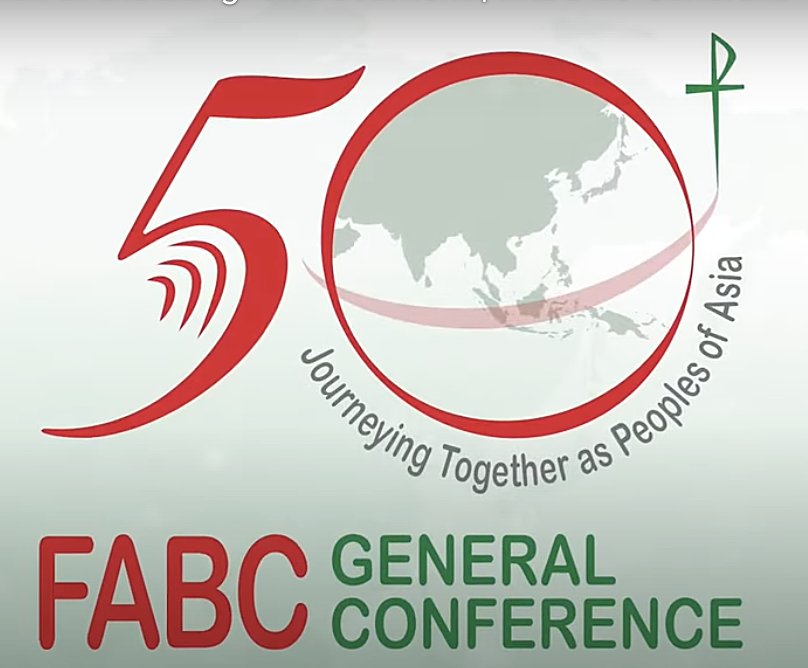

Churches in Asia need to play an active role in addressing pressing realities including migrants, refugees, indigenous peoples, climate change, family issues, women and youth, Asian bishops said in their continental synod document.
The leaders of the Federation of Asian Bishops’ Conferences released the 40-page « Bangkok Document » March 15 during an online ceremony. It is a compilation of the discussions held during the federation’s general conference in the Thai capital last October.
The Oct. 12-30 gathering, which also marked the federation’s golden jubilee, drew church leaders and delegates from about 29 countries. The meeting was followed up with the Asian Continental Synod Assembly Feb. 24-26.
The document is to be presented during the synod on synodality at the Vatican.
During the launch, federation president Cardinal Charles Bo of Yangon, Myanmar, said the document highlights the Asian Church’s « journey together by responding to the call of ideality, reflecting on the various emerging realities confronting the church in Asia, and envisioning new pathways for the future. »
Its former president, Cardinal Oswald Gracias of Bombay, said the document is not a « finished product (but) the beginning of (the) journey » and urged all to approach it as « a spiritual document. »
« To my mind, it is a spiritual document, a document for prayer, for discernment, for spiritual conversation, » the prelate said.
Federation secretary-general Archbishop Tarcisius Isao Kikuchi of Tokyo, clergy, laity and media personnel from across the globe joined the virtual launch.
Filipino Bishop Pablo Virgilio David of Kalookan, the coordinator of the documentation committee, said the « Bangkok Document » is divided into five parts based on the biblical narrative of the three Magi, who are journeying together, looking, discerning, offering gifts and making new pathways.
The first part is titled « Journeying » and draws inspiration from the synod on synodality, he said.
« Synodality’s basic principles of communion, participation and mission have actually given a fuller expression and affirmation to FABC’s long-standing affirmation to triple dialogue: namely with religion, culture and the poor of Asia, » David said.
The second part, titled « Looking, » takes a « serious phenomenological look at the emerging realities confronting the churches in Asia, » he pointed out.
The section deals with nine of the most important realities in Asian societies — migrants, refugees and Indigenous people displaced from their homelands, families, gender issues, the role of women, youth, the impact of digital technology, promotion of an equitable economy, climate crisis and interreligious dialogue.
The third part, titled « Discerning, » deals with the answer to the question of « what the Spirit is telling the churches in Asia in the present times. »
The fourth section, « Offering Our Gifts, » reflects on what Asia can contribute to the universal church specifically focusing on Asian culture and spirituality drawing inspiration from St. John Paul II’s apostolic exhortation « Ecclesia in Asia. »
The last part is titled « Following New Pathways » and aims to « articulate the new directions that the federation feels it is called to undertake in the wider dynamics of the life and mission of the church in Asia. »
The continental synod in the last section identified five pathways that it aims to take: from dominative to « inculturated » evangelization; from basic Christian communities to ecclesial communities that promote basic human communities; from dialogue to synodality; from proclamation to storytelling; and from beaten tracks to new pastoral priorities.
David pointed out that the « Bangkok Document » « underscores the new pathways that had been taken by the 16th-century Italian Jesuits Matteo Ricci and Alessandro Valignano. »
Frs. Ricci and Valignano and other missionaries in the 16th and 17th centuries « chose to follow a different pathway in their approaches to mission, » David said.
He said the FABC seeks to follow the footsteps of figures such as Ricci who chose « interreligious and intercultural dialogue » rather than the more convenient way of « royal patronage » for evangelizing the newly found peoples.
The « Bangkok Document » will be circulated across all dioceses and parishes in Asia, and it is open for further improvements, FABC officials said during the press conference.
